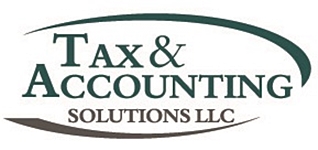Working in shared economy marketplaces like DoorDash, Lyft, or Uber has certain advantages for earning extra income. Some people even make a decent living at it. If you are working in a gig economy, it’s important to remember that these companies don’t withhold taxes from the money you earn, but that doesn’t mean you’re off… Read More
Sole proprietors may be able to reduce their tax burden by hiring their children, spouse, or parents to work as bona fide employees. There are three ways to save tax dollars for the business owner. First, sole proprietors may be able to avoid some payroll taxes on wages paid to their sons, daughters, spouses, and… Read More
Older adults who reach age 70½ and are no longer working need to start drawing funds from their retirement savings accounts, making sure they meet their required minimum distribution (RMD) for the year. RMDs apply to funds saved in traditional IRA, SEP IRA, SIMPLE IRA, 401(k), 403(b), 457, and thrift savings plan accounts. The RMD… Read More
Normally, money distributed from an Individual Retirement Account (IRA) is taxable. However, if the funds are donated directly to charity, the distribution is completely tax-free. This is a significant tax-planning opportunity for older taxpayers. To qualify for tax-free treatment, a charitable IRA distribution must meet three criteria: You must be at least 70½. Your IRA… Read More
Entrepreneurs who want to set up a retirement plan for their business have three options: SIMPLE IRA, SEP IRA, and solo 401(k) plans. Each of these retirement plans enables business owners to save money for retirement. The earnings on the investments are tax-deferred until retirement, and contributions can be tax deductible. Each plan has slightly… Read More
Under the right circumstances, sole proprietors and other small businesses can reimburse employees for legitimate out-of-pocket medical expenses up to the annual limits. By implementing a Qualified Small Employer Health Reimbursement Arrangement (QSEHRA), employers can report these reimbursed medical expenses as a business deduction. If all the formalities are met, the reimbursements are not subject… Read More
People change their names for any number of reasons. You might be taking your spouse’s surname after getting married, or you might be going back to your maiden name after getting divorced. If you change your name, you must notify the Social Security Administration (SSA) and get a new Social Security card. Do this before… Read More
Health savings accounts (HSA) are used in conjunction with a high deductible health plan and offer four tax advantages compared to traditional savings and investment accounts: Your own contributions to the HSA are tax-deductible. Employer contributions to your HSA are excluded from your taxable income. Interest, dividends, and gains earned on your funds inside the… Read More
Businesses can reimburse owners and employees for out-of-pocket expenses under an accountable plan, a set of rules and processes that allow tax-free reimbursements of certain business expenses. To qualify, an accountable plan must contain the following three terms and conditions: Employees must substantiate their expenses by providing the business with a written statement of expenses… Read More
Entrepreneurs often struggle with the question of how much to pay themselves. The underlying rule is that individuals who own and operate their business through an S corp need to pay themselves a “reasonable” salary. This rule also applies to any family members hired to help with the business, such as a spouse, parent, child,… Read More

